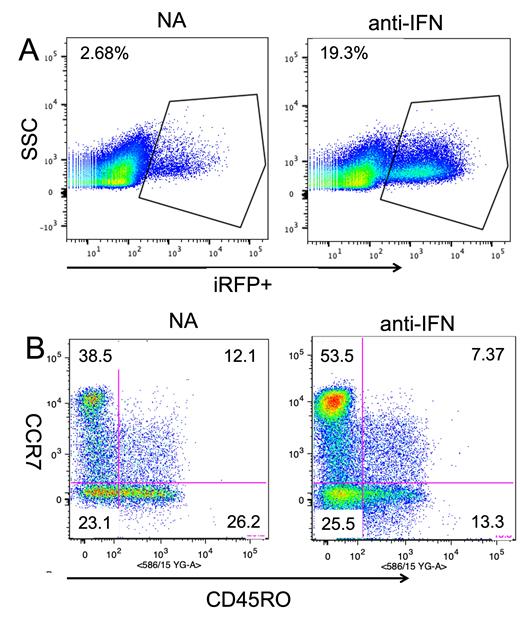Chimeric antigen receptor (CAR) T-cell therapies have revolutionized the treatment of advanced hematologic cancers, showing impressive response rates in pivotal trials. Despite this success, challenges in CAR T-cell adoption persist due to tumor resistance mechanisms, manufacturing failures, and limitations in CAR T-cell persistence and effector function. Strategies that promote T-cell persistence, proliferation, and cytotoxic activity are essential to improving long-term outcomes of CAR T therapy.
The most common protocol for CAR T-cell manufacturing involves lentiviral vector transduction of activated T-cells followed by ex vivo culture. However, this approach may drive terminal T-cell differentiation and exhaustion, compromising therapeutic efficacy. In contrast, non-activated CAR T-cell manufacturing has shown promise in enhancing T-cell differentiation and tumor control. Yet, the low transduction efficiency of quiescent T-cells remains a challenge.
In this study, we explore the role of type I interferon (IFN)-mediated innate immune responses in limiting CAR T manufacturing efficiency. We hypothesize that blocking these responses using the vaccinia virus-encoded type I interferon-binding protein can enhance transduction efficiency and promote less-differentiated CAR T-cell phenotypes, including naïve and central memory-like differentiation.
Our findings demonstrate that lentiviral vector transduction triggers an innate immune response in non-activated T-cells, resulting in reduced transduction efficiency, and altered T-cell differentiation. Inhibiting the anti-viral response via anti-IFN leads to improved T-cell differentiation and exhaustion characteristics. Importantly, anti-IFN exposure supports the enrichment of naive-like T cells: a subset noted for superior clinical efficacy. Anti-IFN also reduces LAG3 expression. Collectively, these findings position anti-IFN as a novel means to enhance CAR T-cell persistence and anti-tumor function.
We further investigate the influence of sustained anti-IFN exposure by designing lentiviral transfer plasmids encoding both a CAR and secreted type I interferon-binding protein. These cells showed enhanced cytolytic activity and cytokine production against target cells. Our studies in mice show promising results, suggesting that the protein secretion enhance therapeutic activity against tumors employing sustained type I interferon signaling for immune escape.
Overall, targeting the type I interferon response during non-activated CAR T-cell manufacturing offers a potential solution to improve transduction efficiency and enhance CAR T-cell functionality. Given the therapeutic promise of non-activated CAR T cells, our findings have immediate translational relevance for broadening their appeal against cancer.
Figure 1. Exposure to anti-IFN increases transduction efficiency and naïve-like differentiation of lentivirus-transduced non-activated T-cells
A) Freshly isolated human T-cells were incubated in media with aIFN or vehicle, for one hour at room temperature. The cells were resuspended in complete media and then transduced with lentiviral vector encoding iRFP. Expression of iRFP was evaluated 96 h after transduction by flow cytometry. b, Human T-cells were isolated and prepared as above. At 96 h post-transduction, cells were stained with anti-CD45RO and anti-CCR7 antibodies and samples were evaluated by flow cytometry. Data for A and B are representative of multiple experiments with three independent donors.
Disclosures
No relevant conflicts of interest to declare.


